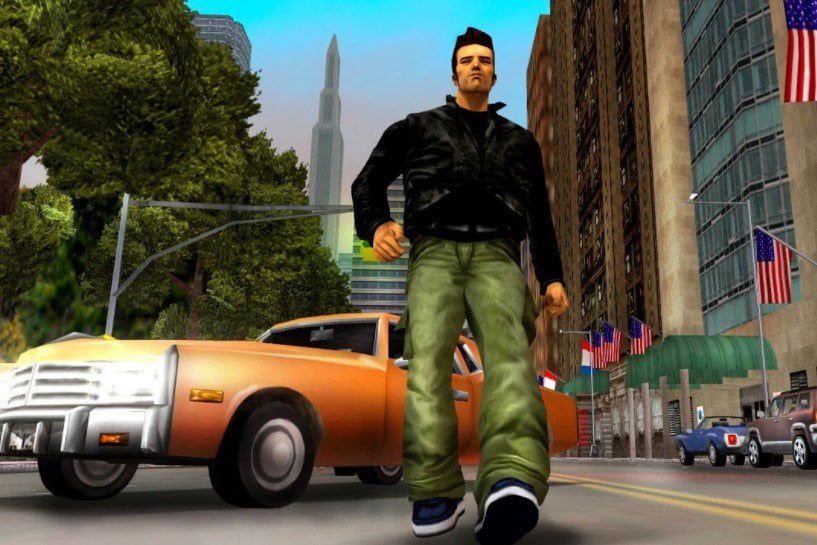 Earlier this year a group of programmers and Grand Theft Auto enthusiasts released ‘re3’ and ‘reVC’, a pair of reverse engineered modifications for GTA 3 and Vice City.
Earlier this year a group of programmers and Grand Theft Auto enthusiasts released ‘re3’ and ‘reVC’, a pair of reverse engineered modifications for GTA 3 and Vice City.
The projects allowed fans to enjoy these dated games with significant enhancements and were a hit with fans.
However, Take-Two and Rockstar Games took exception and responded with a DMCA takedown filed at Github to have the repositories removed. The team fired back using the DMCA counternotice system and ‘re3’ and ‘reVC’ were restored.
Early September, Take-Two filed a lawsuit against the team, arguing that the aim of the projects was to create and distribute pirated versions GTA 3 and Vice City. The company demanded damages under copyright law claiming that the team “willfully and maliciously” copied, adapted and distributed its source code and other content without permission.
Take-Two also demanded damages for alleged misrepresentations in the defendants’ DMCA counternotices.
Team Behind ‘re3’ and ‘reVC’ Fights Back
Through their attorneys, Angelo Papenhoff (aap), Theo Morra, Eray Orçunus, and Adrian Graber have now responded to the complaint. They address each of the plaintiff’s allegations, largely denying them but in some cases stating insufficient knowledge to form a response.
Broadly, however, they insist that they did not commit any type of copyright infringement, something they expand upon in a shortlist of affirmative defenses, i.e defenses based on facts other than those that support the plaintiff’s claim.
Affirmative Defense – Fair Use
Right off the bat, the defendants assert that anything they did in connection with their GTA 3 and Vice City projects were actions protected by fair use under the Copyright Act. If any copying of copyright-protected material did occur, that was undertaken to allow for interoperability of software and fixing bugs present in the original titles.
As a result, any alleged ‘reverse engineering’ of original code represents a transformative use of that content, i.e it added something new, with a further purpose or different character, and did not substitute for the original use of the work.
To the extent that copying of copyrighted material did occur, if any, this was necessary to allow for the interoperability of software and was kept to the minimally required amount.
The answer further points out that the original games were released over 15 years ago and the plaintiff stopped releasing patches and bug fixes several years before any of the alleged actions of the defendants took place.
Another important fact highlighted in the answer to the complaint is that the defendants’ modifications are useless in their own right. In fact, anyone who wished to make use of ‘re3’ and ‘reVC’ could not do so without already possessing copies of GTA 3 and Vice City, games that Take-Two stopped making available for purchase on its online stores.
This leads to the question of whether the alleged conduct of the defendants affected the market for those games and if so, in what way. According to the answer, the mods did not affect the market but to the extent they did, any shift would’ve been positive since people needed to purchase the games to use the mods.
“Any complained of copying of copyright protected material that did occur, if any, was not undertaken for profit or commercial purposes. The doctrine of fair use bars the relief sought by Plaintiff,” the response adds.
Plaintiff Actually Encouraged Game Mods
Despite now aggressively suing the creators of ‘re3’ and ‘reVC’, Take-Two has previously allowed third parties to develop mods of its software (including for GTA 3 and Vice City) without any adverse action in response. That’s according to the answer which states that Take-Two (or its “subsidiaries or predecessors interest”) have “showcased” mods and even released portions of its software to the Multi Theft Auto (MTA) mod project.
“These supported, encouraged, or allowed ‘mod’ projects, upon information and belief, required the reverse engineering of software just as Defendants are alleged to have undertaken. Upon information and belief, Defendants had an implied license to undertake any complained of actions or Plaintiff abandoned is copyright,” the answer reads.
Extraterritorial Application of US Law
Take-Two’s complaint alleges that Angelo Papenhoff is a resident of Germany and the response admits that. However, the claim that Theo Morra is an individual located in New Zealand is denied. Similarly, it is denied that Eray Orçunus is located in Turkey and Adrian Graber is located in Germany.
While these factors aren’t expressly cited in the defendants’ third affirmative defense (the extraterritorial application of US law), the complaint alleges that the copying of copyrighted material was undertaken outside the United States. As such, US copyright law lacks reach, the defendants say.
“The United States Copyright Act should not be applied outside the United States and its territories. To the extent Plaintiff seeks to extend the application of the United States Copyright Act to cover activities outside the United States, its claims should be barred,” the answer concludes.
“Bug Fixes and Enhancements” Come At a Bad Time For Take-Two
For months there has been speculation that the real reason behind Take-Two’s legal action against the ‘re3’ and ‘reVC’ developers is that they were planning to officially release enhanced versions of their old games. The latter component was confirmed with the release of Grand Theft Auto: The Trilogy, which includes remastered versions of GTA III, GTA Vice City, and GTA San Andreas.
Unfortunately, that has been nothing short of a disaster. As reported by Eurogamer, the Definitive Edition was unplayable due to software problems and is only now available again for purchase after three days of downtime. Refund requests have been coming in thick and fast and the title has been review bombed down to an aggregate score of 0.5 on Metacritic.
The answer to Take-Two’s complaint can be found here (pdf)





